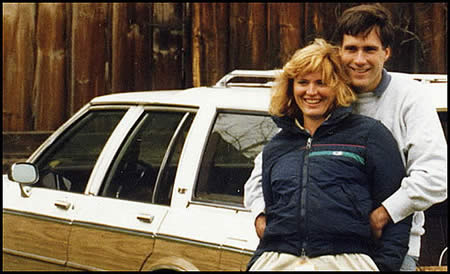Bailout Watch 221: Mitt Mauls Motown
Mitt Romney reckons Detroit’s bailout brigade should get bupkis from Uncle Sam. Squat. Zero. Zilch. The big goose egg. Writing in The New York Times, the failed Republican presidential candidate and former Bay State gov leave no word unminced, claiming “Detroit needs a turnaround, not a check.” Quick digression. If that’s the quality of Mitt’s sound bites, it’s no wonder he got gunned down by Maverick. How about “Detroit needs root and branch revision, not more fertilizer?” No? OK, where was a I? Right… Romney exercises his CEO chops, giving readers of the Gray Lady a double dose of paternal hagiography and a lesson in economics they will soon forget. And then, the money shot. “A managed bankruptcy may be the only path to the fundamental restructuring the industry needs. It would permit the companies to shed excess labor, pension and real estate costs. The federal government should provide guarantees for post-bankruptcy financing and assure car buyers that their warranties are not at risk.” Take away the craven “may”– call it a political reflex– and it looks like Mitt’s been reading TTAC. “In a managed bankruptcy, the federal government would propel newly competitive and viable automakers, rather than seal their fate with a bailout check.” True dat.
More by Robert Farago


































Comments
Join the conversation
Robert, I don't think Mitt was being that political. Word is that he's not running in 2012, and in any case the op-ed won't exactly help him get votes in Michigan. It's not just a hagiography. Readers of the NYT may be disinterested in Mitt's dad, but George Romney continues to be deeply respected in Michigan for both his business and political skills. He was a pretty accomplished guy. Besides championing compact cars and having a prescient sense of the competitive threat from foreign manufacturers, Romney indeed saved AMC. When he took control of what remained of Hudson and Nash, few expected AMC to last out the 1950s, let alone the 60s, 70s and most of the 80s. Auto execs are rarely popular with autoworkers, nor are Republicans but Romney, defeated an incumbent Democratic governor and was reelected twice by Michigan voters. He led and implemented constitutional changes in Michigan and was an early supporter of civil rights and tax reform and in general was a fairly successful governor and the state prospered under his administrations. He was also an early skeptic of the Vietnam War. His controversial comment in 1967 about being brainwashed by the Army brass on a fact finding tour of the troops may have undermined his presidential campaign. Looking back, Gen. Westmoreland's emphasis on enemy body count, and Westmoreland's 1968 replacement by Creighton Abrams, who implemented the more successful "clear and hold" strategy of counterinsurgence gives some perspective on the wisdom of Romney's statements and stance concerning the war in 1967. Michigan has had some decent Governors. Soapy Williams was very successful as a Democrat, and Romney and Engler governed well as Republicans. Blanchard, a traditional Democrat, wasn't terrible, and Millikin, a very moderate Republican also did okay. Granholm's been the worst in my life, but she's also been dealt a pretty bad hand.
I read Mitts article in the Socialists Times. It was one of the most intelligent, well written articles I've read in that rag.
Mitt Romney makes sense. It's not going to help to give Detroit a bailout. It will hurt. The money will be burned up in a few months, and the needed changes will not be made. Detroit needs major surgery. It has a life-threatening disease, and may not make it. But ignoring the real problem and living life as usual is the worst possible solution.
Mitt is right on target. His editorial is a breath of fresh air. Perhaps this editorial will help change the debate on this subject. As for his father - he was the right man at the right time for a struggling AMC. George Romney successfully pulled off the consolidation of moribund Hudson and struggling Nash. Contrast his actions with those of James Nance, who merged Packard with Studebaker, and then proceeded to do virtually everything wrong. Romney brought AMC back from the brink, and by 1962 it was nipping at Chrysler Corporation's heels for third place in the automobile industry (although Chrysler helped AMC by bringing out ugly, downsized full-size Dodges and Plymouths that year). Romney left AMC at that time for politics, and the company began its downhill slide. In subsequent interviews, Romney has blamed his successor - Roy Abernethy - for deviating from his strategy, and thus running AMC into the ground. But even in 1963, when an all-new line of Classics and Ambassadors developed under Romney's tenure were setting a sales record for AMC, the company actually fell several slots in the sales race. In 1964, AMC fielded an all-new, and very attractive Rambler American. The 1964 line was developed under Romney's tenure, and while it implemented a clever platform-sharing arrangement that many automakers emulate today, the bottom line is that total AMC sales fell in a booming market. George Romney had the right message at the right time in the late 1950s. A signinficant number of buyers were tired of the ever-larger, gaudier cars being pumped out by the Big Three. And quality control was declining throughout the industry after 1956 - particularly at Chrysler, and, to a lesser extent, Ford. Romney's smaller, well-made Ramblers struck a chord with buyers. But by the mid-1960s, GM, Ford and Chrysler had improved quality, and brought out their own compacts and intermediates. The Dodge Dart and Plymouth Valiant offered a dependable, more stylish alternative to the Ramblers. The Ford Mustang proved that "small" could be "stylish," along with reliable. By 1965, the "Romney" image of dull, slow cars that ran forever was hurting the company. Unfortunately, AMC management thought that meeting the Big Three head on was the answer. This approach failed miserably, plus quality control at AMC declined badly after 1964. Contemporary road tests of Ramblers in the mid-1960s mention parts falling off of the cars. Whether Romney could have pulled AMC out of its mid-1960s nosedive is an unanswered question. When asked whether he was bothered by how many Ramblers were in the slow lane, he replied, "No, as long as there are a lot of them." That approach doesn't work when your competitors are invading your market segment with more stylish, better performing vehicles. He would kept a close eye on tooling costs - which Abernethy failed to do - but whether he could have made Ramblers stand out in sea of domestic and foreign rivals is the key question. As for his son - Mitt did a decent job as Governor of Massachusetts. The main black mark on his report card is his health care plan that required everyone to have health insurance (it basically treated the way many states treat automobile insurance, by making it compulsory, and helping people who cannot afford to purchase it on their own). Its costs have outstripped the original projections, but this is common with many government programs, as proponents deliberately underestimate costs to make them more attractive (just wait if President Obama really does enact his campaign promises into law). But, as I recall, both Hillary Clinton and Barack Obama borrowed from his plan for their health care proposals.